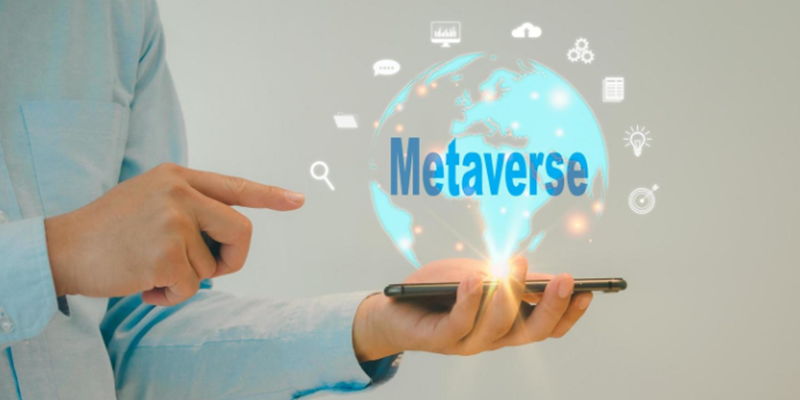The metaverse, a virtual realm where individuals can interact and transact in a digital environment, is revolutionizing the way we perceive and engage with the digital world. At the heart of the metaverse lies blockchain, a decentralized and distributed ledger technology that plays a pivotal role in shaping this emerging digital landscape. In this article, we will explore how blockchain technology is redefining the metaverse and revolutionizing digital interactions.
Role of Blockchain in the Metaverse
Blockchain technology serves as the foundation for the existence and functionality of metaverse tokens, which represent digital assets within this virtual realm. These tokens rely on blockchain’s transparent and secure architecture, ensuring the authenticity and integrity of digital assets. By leveraging cryptographic principles, blockchain enhances the security of metaverse tokens, protecting them from fraud and tampering.
Immutability: A Key Characteristic of Blockchain
One of the key characteristics of blockchain technology is its immutability. Once information is recorded on the blockchain, it becomes nearly impossible to alter or manipulate. This feature ensures the integrity of transactions and records in the metaverse, providing users with confidence and trust in the digital realm.
Decentralization in the Metaverse
Decentralization is a fundamental concept in the metaverse, eliminating risks associated with central authority control. Through blockchain technology, the metaverse becomes a democratic and open ecosystem. Users have full control over their digital assets and interactions, without relying on intermediaries or centralized entities. This empowerment fosters a user-centric environment, cultivating trust and fostering innovation within the metaverse.
Automation through Smart Contracts
Smart contracts, self-executing digital contracts encoded on the blockchain, automate processes within the metaverse. These contracts facilitate seamless transactions, removing the need for intermediaries and reducing transaction costs. Smart contracts enable secure and efficient exchanges of metaverse tokens, thereby enhancing the overall user experience and promoting seamless interactions within the virtual realm.
Metaverse Tokens as Digital Currencies
Metaverse tokens serve as the digital currencies that fuel transactions and interactions within the metaverse. These tokens enable individuals to purchase virtual assets, engage in virtual economies, and trade goods and services. Powered by blockchain technology, metaverse tokens provide a secure and transparent means of exchange, ensuring the seamless flow of value within the metaverse ecosystem.
Interoperability of Blockchain in the Metaverse
The interoperability of blockchain empowers the metaverse to integrate seamlessly across different virtual platforms and ecosystems. By leveraging interconnected blockchain networks, users can transact and interact across various metaverse environments, fostering collaboration and innovation. Interoperability broadens the possibilities within the metaverse, enabling users to explore diverse virtual realms and expanding the potential for cross-platform experiences.
Adoption of Standard Tokenization Protocols
Standardization plays a crucial role in metaverse tokenization. Protocols like ERC-20 and ERC-721 have become the backbone of metaverse tokenization, providing a common framework for developers and users. These standards ensure compatibility, interoperability, and ease of integration for different metaverse projects. Standardization promotes market liquidity, enhances token fungibility, and simplifies the overall user experience.
Redefining Digital Perception and Interaction
The synergy between blockchain technology and the metaverse is poised to revolutionize how we perceive and interact with the digital realm. The metaverse, powered by blockchain, offers individuals new avenues for self-expression, creativity, and economic opportunities. This transformative fusion paves the way for immersive virtual experiences, where the boundaries between the physical and digital worlds blur.
Blockchain technology has emerged as an indispensable tool in shaping the metaverse. Its decentralization, security, automation, and interoperability capabilities ensure a democratic, secure, and seamless virtual ecosystem. Metaverse tokens, powered by blockchain, enable individuals to transact, create, and explore within a digital realm fueled by limitless possibilities. As the metaverse continues to evolve, the role of blockchain technology will remain central in redefining digital perceptions and interactions.

